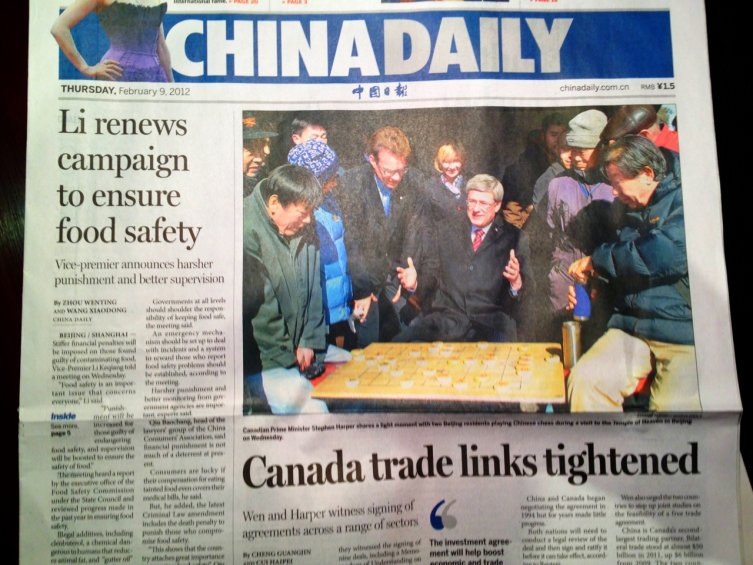Eugene Lang has an interesting view of how Stephen Harper has changed since coming to power and how this is reflected in Canada’s foreign policies:
Stephen Harper became Prime Minister six years ago with little interest in or experience of international affairs. He was a domestic policy wonk — particularly interested in economic and fiscal affairs. Yet, in about half a decade, he has fashioned the clearest Canadian foreign policy posture in at least a generation, whether you like that posture or not. We can now speak of a Harper Doctrine which forms the cornerstone of our foreign relations.
In a largely ignored interview with Maclean’s magazine last summer, the Prime Minster stated: “We also know, though, the world is becoming more complex, and the ability of our most important allies, and most importantly the United States, to single-handedly shape outcomes and protect our interests, has been diminishing, and so I’m saying we have to be prepared to contribute more, and that is what this government’s been doing.”
These remarks are an important insight into the Prime Minister’s perception of the changes in America’s geopolitical position, and how Canada should respond. They suggest his world view is based on the premise that the United States is in relative decline as a superpower, and that Canada must step up to the plate to help our distressed ally police the world. It is a striking acknowledgement. And it was not just words.
Canada has been needing to diversify its trading relationships to reduce its dependence on, and exposure to, the vagaries of the US economy and the meddling of the US government. President Obama’s recent decision to veto the Keystone XL pipeline is merely the latest spur to get Canada to work more closely with China and other growing economies rather than be subject to presidential whim in our dealings with the US.
During his first half-decade in office Stephen Harper was putting most of Canada’s economic eggs in the American basket, as had his predecessors — from Brian Mulroney to Jean Chrétien to Paul Martin. The Prime Minister was accused of willfully ignoring unprecedented economic opportunities in China.
But that is a thing of the past. Over the last year, the Harper government has embarked on the most ambitious trade and economic diversification agenda in memory. Ottawa is now pursuing free trade agreements with India and the European Union simultaneously. The government has done a 180 on Chinese trade and investment, actively and aggressively pursing both. Canada is trying hard to become a member of the Trans Pacific Partnership, a multi-lateral free trade agreement centred in Asia. And now Canada has begun free trade negotiations with Japan, the world’s third largest economy. Little of this was on Ottawa’s radar screen 18 months ago.
It’s my opinion that the US economy is being held back at least in part because of fears of what the federal government may do — instead of smoothing the worries of business, the government is stoking them and adding to the uncertainties that make business decision-making less bold. The more regulatory changes the government makes (or even hints that it might make), the less investment will be made in areas that might be affected by those changes. The current presidential election campaign with its naked fanning of class warfare isn’t helping the situation either.
Since the global financial crisis, the evidence has mounted that the United States is in economic decline. Its system of government seems congenitally incapable of coming to grips with America’s fiscal crisis. For the first time in living memory, the U.S. recovery from recession has been weaker than Canada’s. The United States continues to have a higher unemployment rate than Canada, virtually unheard of historically. The American economy is amazingly resilient and might yet come back strong, but right now the evidence suggests a long period of relative economic stagnation south of the border. This is the most important structural change affecting Canada since Stephen Harper became Prime Minister.




